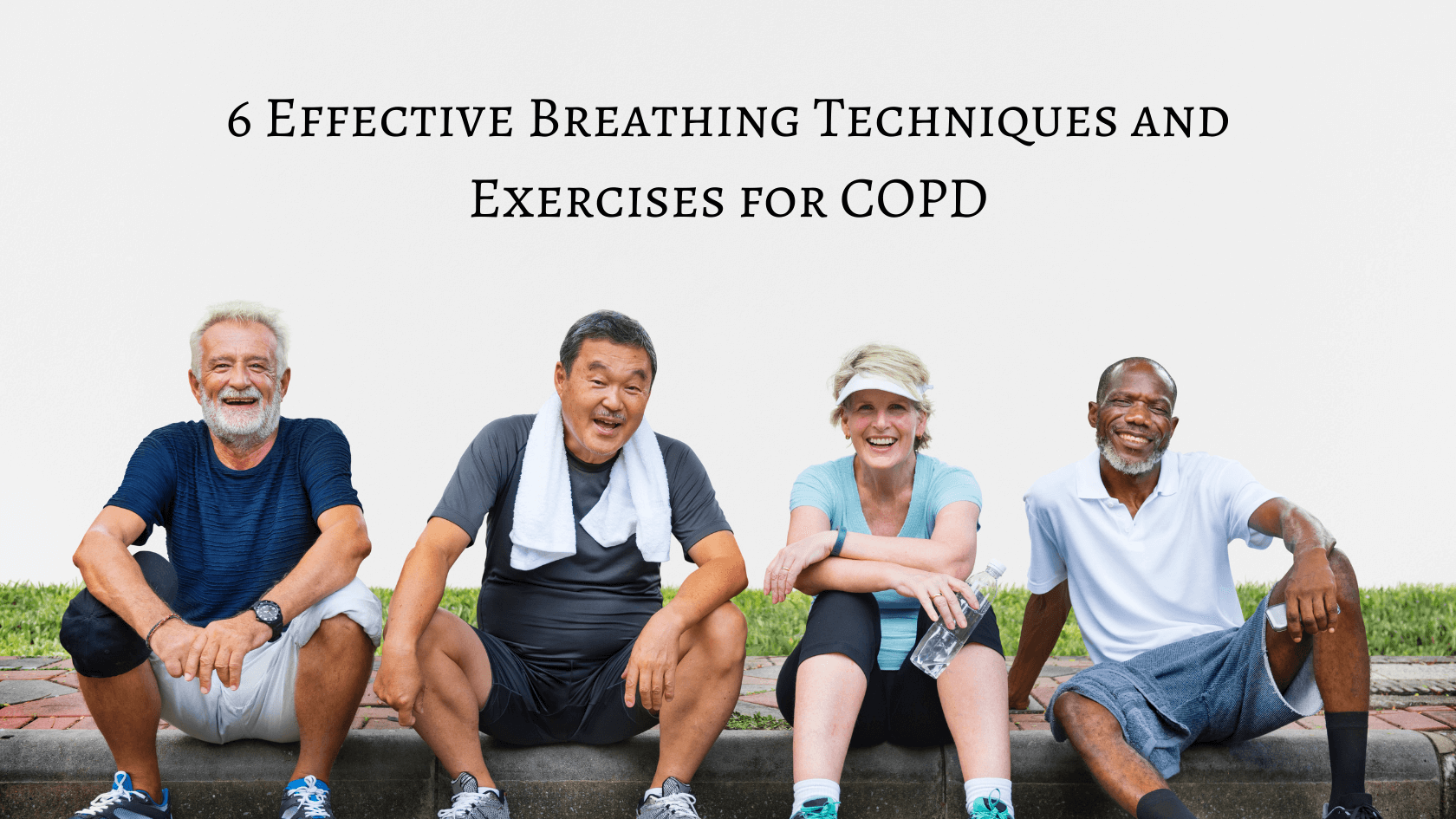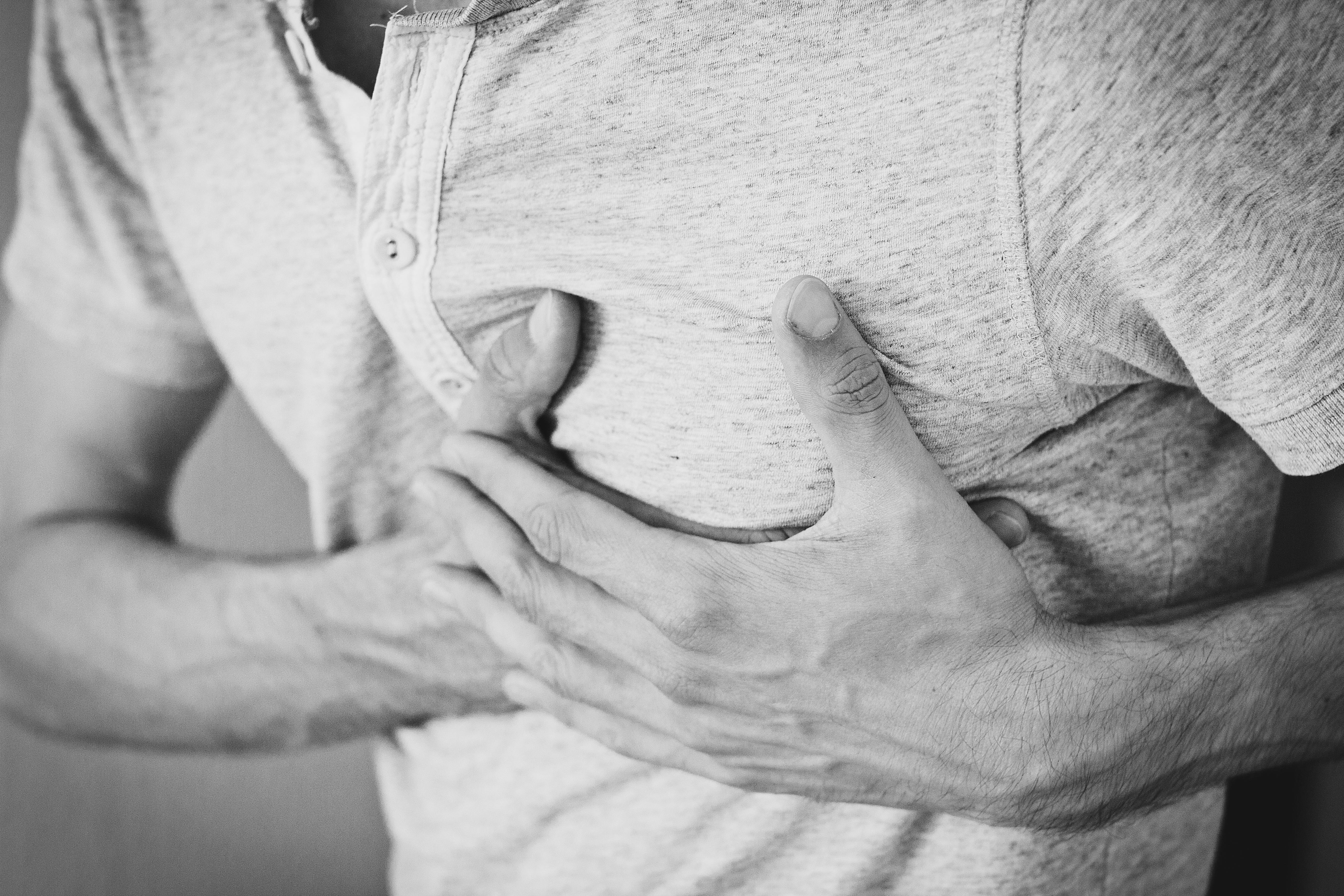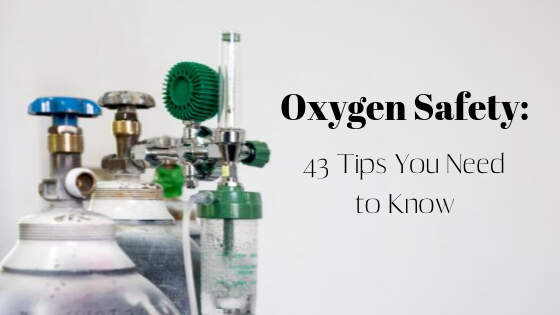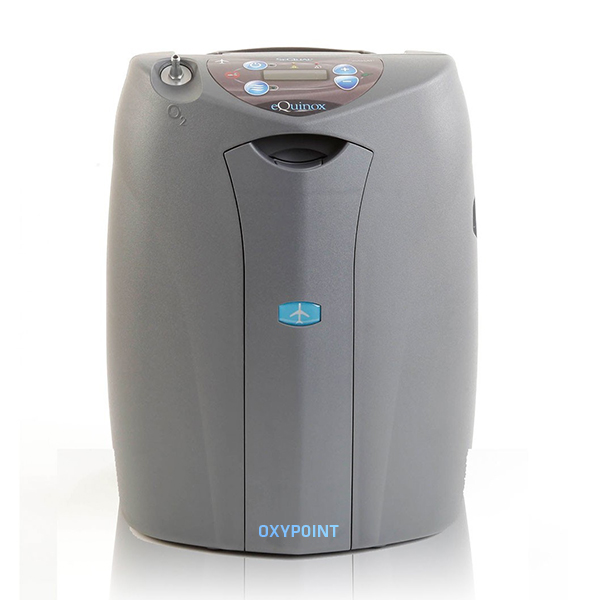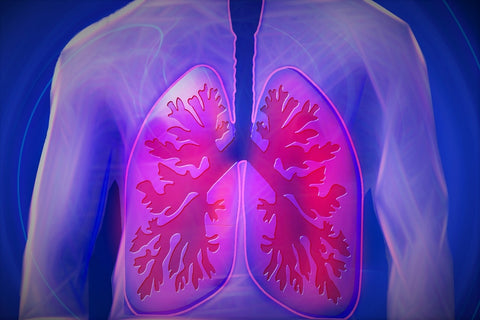"Is being barrel chested bad?" — In the later stages of COPD, some people with the disease begin to notice a barrel-shaped chest that, understandably, leads to concern. Although this is not always a serious issue, it can be a sign of emphysema, a type of COPD.

Barrel Chest: What is It and What Does it Mean for COPD Patients?
Feb 27, 2018 1:29:24 PM / by Duke Reeves posted in COPD, Medication and Treatment
6 Effective Breathing Techniques and Exercises for COPD
Feb 27, 2018 1:26:52 PM / by Duke Reeves posted in COPD, Medication and Treatment, Tips and Hacks
As a respiratory disease, COPD comes with many symptoms, but the most serious and uncomfortable of these symptoms is difficulty breathing. These breathing problems have a variety of interconnected causes, including airway obstruction, reduced lung function, and a reduced capacity for exercise that are all caused by COPD.
How to Prevent COPD-Related Heart Attacks
Feb 27, 2018 1:00:32 PM / by Duke Reeves posted in COPD, Medication and Treatment, Tips and Hacks, diet, oxygen therapy
Although COPD is known primarily as a lung disease, some of its most serious complications have to do with the heart. People with COPD tend to struggle with a variety of cardiovascular symptoms and complications, including cardiovascular disease, heart attacks, and heart failure.
Oxygen Safety: 43 Tips You Need to Know
Feb 27, 2018 12:58:01 PM / by Duke Reeves posted in COPD, Medication and Treatment, Portable Oxygen, Tips and Hacks, portable oxygen concentrator, oxygen therapy
Lung function decline is a defining characteristic of COPD, and it gets worse as the disease progresses. Because of this, most COPD patients eventually have to begin using supplemental oxygen to help their lungs once they become too weak to absorb enough oxygen on their own.
The purpose of supplemental oxygen is to deliver extremely oxygen-rich air to your lungs, usually using a pressurized oxygen tank or an oxygen concentrator. This air, generally about 85-95 percent pure oxygen, allows your lungs absorb more oxygen with every breath.
Supplemental oxygen is a very important part of COPD treatment because it helps your lungs take in enough oxygen to supply your organs and tissues with the oxygen they need. Without it, your blood oxygen saturation can fall to unhealthy levels—a condition called hypoxemia—which can lead to serious, life-threatening complications over time.
How to Know What Oxygen Delivery System is Best for You
Feb 27, 2018 12:52:24 PM / by Duke Reeves posted in Medication and Treatment, Respiratory Resource Center, Portable Oxygen, oxygen therapy
For many patients who have COPD, oxygen therapy is a major feature of day-to-day life. If you use oxygen during the daytime, managing oxygen tanks and equipment inevitably becomes a routine part of almost every daily task and activity.
7 Common COPD Complications and How To Prevent Them
Feb 27, 2018 12:50:48 PM / by Duke Reeves posted in COPD, Medication and Treatment, Tips and Hacks
Even though COPD is a chronic respiratory disease, its effects aren't limited to your lungs and airways. COPD can affect many parts of the body over time and lead to a variety of complications.
Antibody Treatment Proves Effective in Treatment-Resistant Subgroup of COPD Patients
Feb 27, 2018 11:22:48 AM / by Duke Reeves posted in COPD, Medication and Treatment
Researchers have found that there is a treatment in existence which could help patients with a particular kind of Chronic Obstructive Pulmonary Disease (COPD). This antibody treatment is said to reduce the rate of flare-ups by close to 20 percent in patients with a sub group of treatment-resistant COPD, according to the results of two large international trials presented at the European Respiratory Society International Congress in Milan, Italy and simultaneously published in the New England Journal of Medicine.
Pulmonary Rehab: What You Need To Know
Sep 22, 2017 4:00:00 AM / by Duke Reeves posted in COPD, Medication and Treatment, Tips and Hacks
Chronic Obstructive Pulmonary Disease (COPD) is a progressive lung disease. COPD is an umbrella term for diseases like emphysema and chronic bronchitis. COPD comes in stages with stage one being mild and four being the very last stage. There is a need to improve the quality of life and slow down progression into subsequent stages.
Pulse Oximeters: What Do They Do and Should You Buy One?
Sep 18, 2017 4:00:00 AM / by Duke Reeves posted in COPD, Medication and Treatment, Tips and Hacks
When you live with COPD or another chronic respiratory disorder, managing your symptoms and getting enough oxygen is an everyday struggle. You might worry about getting enough supplemental oxygen, or fear that your blood oxygen levels drop too low at times.
But what if there was an easy way to make sure your body is getting enough oxygen any day, any time, from the comfort of your own home? Luckily, all you need is a small, hand-held device called a pulse oximeter, and you can do just that.
A pulse oximeter is a quick, simple, and completely non-invasive home method for testing your blood's oxygen saturation. It's a great way to monitor your symptoms, catch abnormalities, and prevent hypoxia, which happens when your blood oxygen levels fall too low.
What You Need to Know About Oxygen and Medicare
Sep 11, 2017 4:00:00 AM / by Duke Reeves posted in COPD, Medication and Treatment, Tips and Hacks
So, you've been diagnosed with a respiratory disease and your doctor says that you need supplemental oxygen in order to breathe better and stay healthy. After considering different options, you and your doctor now decide that a portable oxygen concentrator is the best piece of equipment to fit your needs. Now what?


.png)


